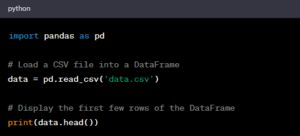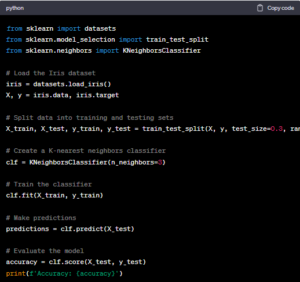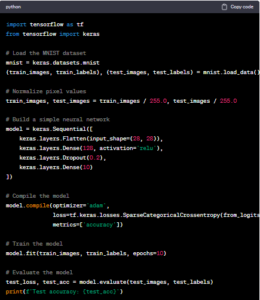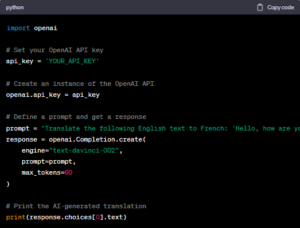Artificial Intelligence (AI) is one of the most exciting and rapidly evolving fields in technology today. As a beginner, diving into AI can seem daunting with its complex algorithms, mathematical concepts, and myriad of tools and libraries. However, with the right resources and guidance, you can embark on this thrilling journey of mastering AI. In this comprehensive guide, we will explore a range of tools and resources specifically tailored for beginners in AI. Along the way, we’ll provide practical examples to illustrate their usage, including interactions with AI models like ChatGPT.
Understanding AI Basics
Before we delve into the tools and resources, it’s essential to grasp the foundational concepts of AI.
What is AI?
AI refers to the simulation of human intelligence in machines, enabling them to perform tasks that typically require human intelligence. These tasks include problem-solving, natural language understanding, decision-making, and visual perception.
Machine Learning vs. Deep Learning
Machine learning is a subset of AI that focuses on training algorithms to learn from data and make predictions or decisions. Deep learning, on the other hand, is a subfield of machine learning that uses neural networks with many layers to solve complex tasks.
Now, let’s explore the tools and resources that will kickstart your AI journey.
Tools for Beginners in AI
Python
Python is the go-to programming language for AI and machine learning due to its simplicity and a vast ecosystem of libraries. You’ll need to install Python on your computer and choose an integrated development environment (IDE) like Jupyter Notebook or VSCode to get started.
Jupyter Notebook
Jupyter Notebook is an interactive environment for writing and running code. It’s especially useful for AI projects as it allows you to document your code and results in a step-by-step manner.
NumPy and Pandas
NumPy and Pandas are essential libraries for data manipulation and analysis in Python. NumPy provides support for numerical operations, while Pandas excels in data manipulation and analysis, making it indispensable for handling datasets.
Practical Example: Loading and Manipulating Data with Pandas

Scikit-Learn
Scikit-Learn is a machine learning library that simplifies the implementation of various machine learning algorithms. It offers a wide range of tools for classification, regression, clustering, and more.
Practical Example: Building a Simple Classifier with Scikit-Learn

TensorFlow and PyTorch
TensorFlow and PyTorch are two of the most popular deep learning frameworks. They allow you to build and train neural networks for various AI applications.
Practical Example: Building a Neural Network for Image Classification with TensorFlow

Resources for Learning AI
Online Courses
There are numerous online courses tailored for beginners in AI. Some popular options include:
- Coursera’s “Machine Learning” by Andrew Ng: This course offers a solid introduction to machine learning concepts.
- edX’s “Introduction to Artificial Intelligence”: A comprehensive course covering AI fundamentals.
Books
Books are a valuable resource for in-depth learning. Consider these titles:
- “Python for Data Analysis” by Wes McKinney: A great book for mastering data manipulation with Python and Pandas.
- “Hands-On Machine Learning with Scikit-Learn, Keras, and TensorFlow” by Aurélien Géron: An excellent guide to building machine learning and deep learning models.
AI Blogs and Forums
Staying updated with AI developments is crucial. Follow blogs like OpenAI’s, and engage in forums like Stack Overflow and Reddit’s r/MachineLearning to ask questions and learn from others.
AI Model APIs
Interacting with AI models can be both educational and fun. OpenAI’s ChatGPT, for instance, allows you to have conversations with a language model.
Practical Example: Interacting with ChatGPT
To use ChatGPT, you can make API requests using Python:

AI Community Events and Meetups
Participate in AI meetups and conferences, either in person or virtually. These events provide networking opportunities and a chance to learn from experts in the field.
Conclusion
Embarking on a journey into the world of AI as a beginner is both exciting and rewarding. By arming yourself with the right tools and resources, such as Python, Jupyter Notebook, Scikit-Learn, TensorFlow, and PyTorch, along with online courses, books, and AI model APIs like ChatGPT, you can build a strong foundation in AI. Remember that learning AI is a continuous process, and staying engaged with the AI community and staying updated with the latest developments is key to your success. So, dive in, experiment, and enjoy your journey into the world of artificial intelligence!









